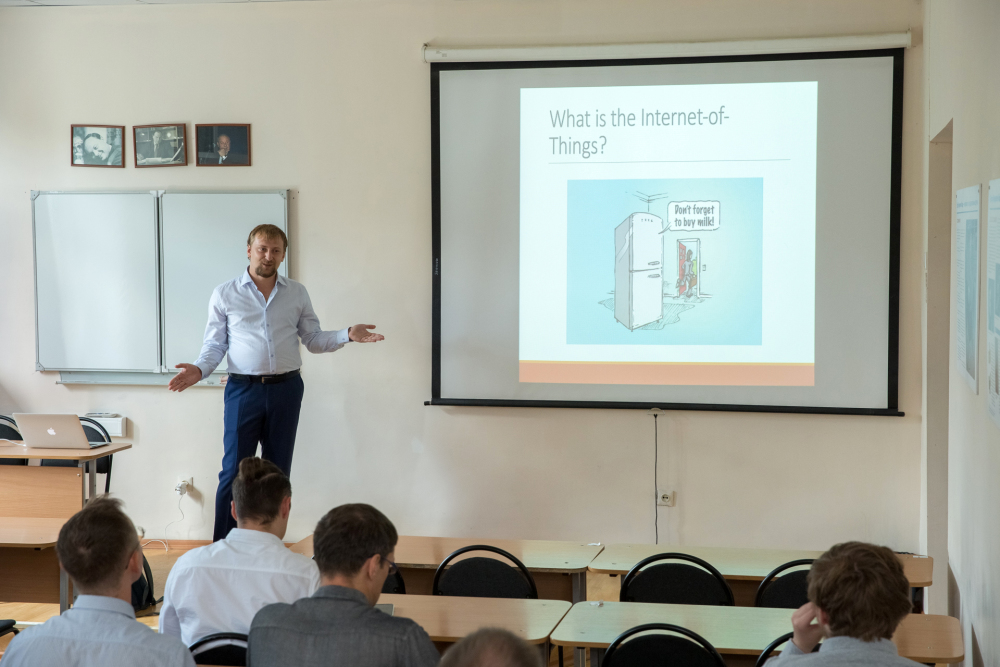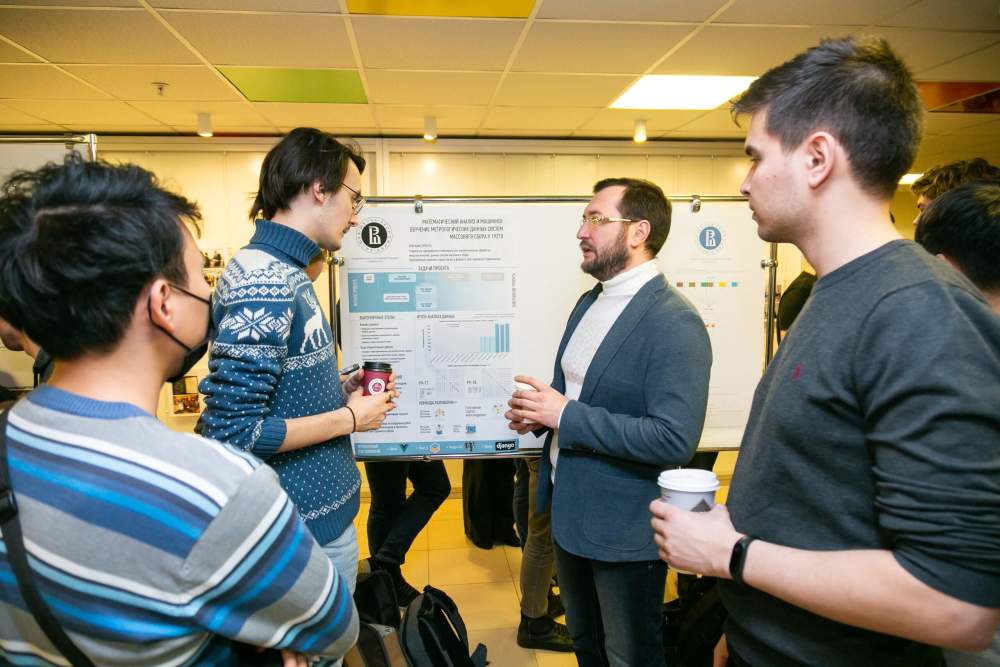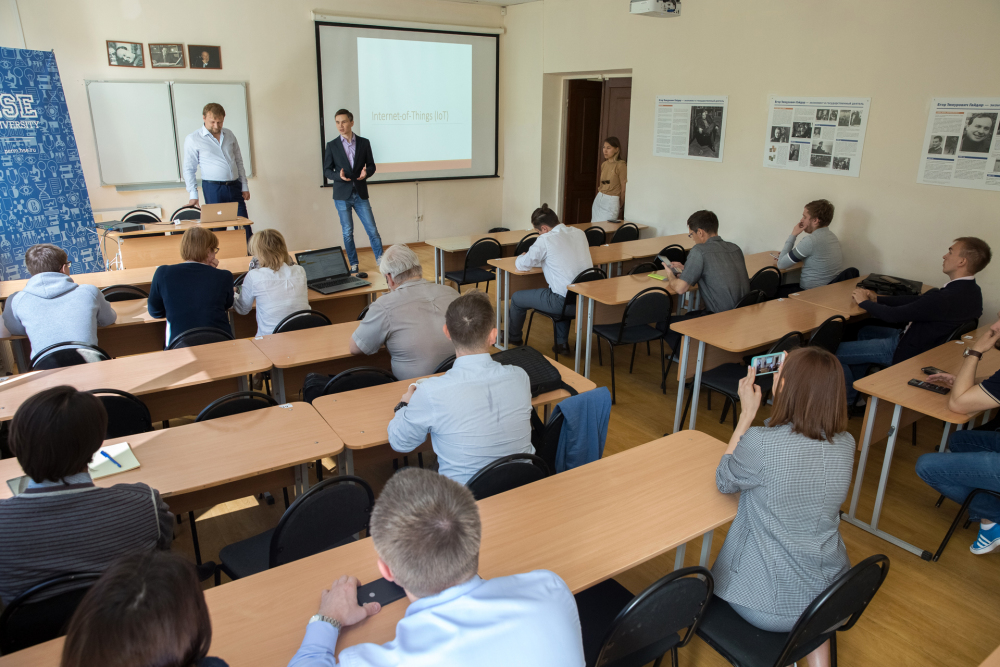- A
- A
- A
- АБB
- АБB
- АБB
- А
- А
- А
- А
- А
Information Security
Fedor Ivanov is an Associate Professor and Senior Research Fellow at the Department of Cyber-Physical Systems Information Security
What is the specificity of information security as a direction of education and research?
We focus on those aspects of mathematics that are closely related to communication and information theories as well as the theory of data transmission, storage and processing. There is difference between secure data processing in information security and cryptography, and we take this into account in our educational programs and research. In addition to mathematics, our students study applied disciplines – systems and software engineering, security of telecommunication systems and networks – which combine fundamental mathematics with modern informatics (including a lot of programming languages) and show how theory meets practice in terms of information protection. Thus, we are primarily focused on training “civilian” information security professionals with a deep knowledge of modern telecommunications technologies and standards, and who are ready to deploy, update and even create secure information systems of various scales.
We actively encourage the development of students’ interest in science through organization of seminars that cover both classic problems as well as completely new approaches in telecommunication technologies. As projects and term papers of student have to correspond to current agenda in telecommunications and information security, such an approach allows to widen their horizons and touch upon the “adult science”, and perhaps understand that science is what they want to do in life. I am convinced that it is only the alignment between basic science and modern technologies that can lead to a “technological breakthrough”, especially if it concerns such a complex and science-intensive field as information security.

What kind of research does your department carry out?
Our department is quite young; it was formed in 2019 and so far, the team is not that big, although our research interests are rather wide. Our telecom group is engaged in both fundamental and applied research in regards to contemporary error-control coding systems – low-density parity-check codes (LDPC), convolutional and polar codes. Our team proposed a new low-resource algorithm for decoding polar codes, which today surpasses all known analogues in its complexity and efficiency. It should soon be published in a high-ranking IEEE journal. We also do research on effective decoding algorithms, including those based on neural networks, and have already received new outcomes, which we will definitely publish and patent in the near future.
Over the last two years, we have become engaged in research on post-quantum cryptography. It has been proven that the algorithms that are currently used in the banking sector – asymmetric encryption algorithms, digital signatures – will be immediately compromised as soon as sufficiently powerful quantum computers appear. Although the prospect of quantum computers’ emergence is rather distant, a potential vulnerability within such systems already exists. Therefore, we are developing methods that will encrypt data based on the assumption that quantum computers are a given (one of the existing ideas is the McEliece cryptosystem). However, the main problem of code-based cryptographic systems is the large length of cryptographic keys. Thus, the efforts of most researchers are aimed at reducing it to the length of conventional algebraic cryptosystems. Our team proposed a new approach, which is based on a fundamentally new key structure. It was already presented at EUROCRYPT 2020, one of the leading conferences in cryptography, and attracted considerable interest in the scientific community.

Another branch of our research are digital watermarks and steganography. The lead researcher in this field is the head of the department - Oleg Evsyutin. Digital watermarks are used to copyright digital content. They can check the ownership of a copyright or hide certain data in digital content that would let one say that a certain file or video belongs to a certain copyright holder. Oleg Evsyutin is also researching digital steganography, or covert data transmission through pictures - although they do not visually differ from the original ones, the modified pictures can transfer some hidden data. This type of unnoticeable data transmission is used when it is impossible to create a secure data transmission channel. These all are a part of information cybersecurity.
Moreover, we are engaged in commercial specialized application projects concerning fifth generation (5G) communication standards, and soon we will be looking at prospective 6G standards. Since some tasks require knowledge of physics, especially with respect to 6G+, this imposes restrictions on data transfer rate and may cause certain delays in the programming. Nevertheless, certainly, it is very useful that MIEM has excellent specialists who are engaged in research on quantum transmission. Through our commercial and industrial projects, over the past year, we have submitted two patent applications and they are currently being reviewed by respective offices.

Is research the only activity the department does?
The department also runs Bachelor's and Master's programmes in the field of information security. The undergraduate programme trains specialists who can operate existing systems and, in some ways, improve them. Some of our current students are already employed in the banking sector and consulting agencies while others have turned to AI and computer vision. Our graduate programme prepares specialists who are engaged in research and thus able to not only perform deployment of information security systems at enterprises and ensure data security, but also see what can be qualitatively improved in those systems, or even create new ones. Since we have strong connections with industry, our students engage in commercial research for large telecommunications firms. Thus, we are primarily focused on training ‘civilian’ information security professionals with extensive knowledge of contemporary telecommunications technologies and standards, and who are ready to deploy, update and even create secure information systems of various scales.
Among our immediate plans is to go global and launch joint English-taught educational programmes in information security for international students. Apart from that, our staff are involved in a large number of continuing education programmes, which are in high-demand on the part of various external clients.